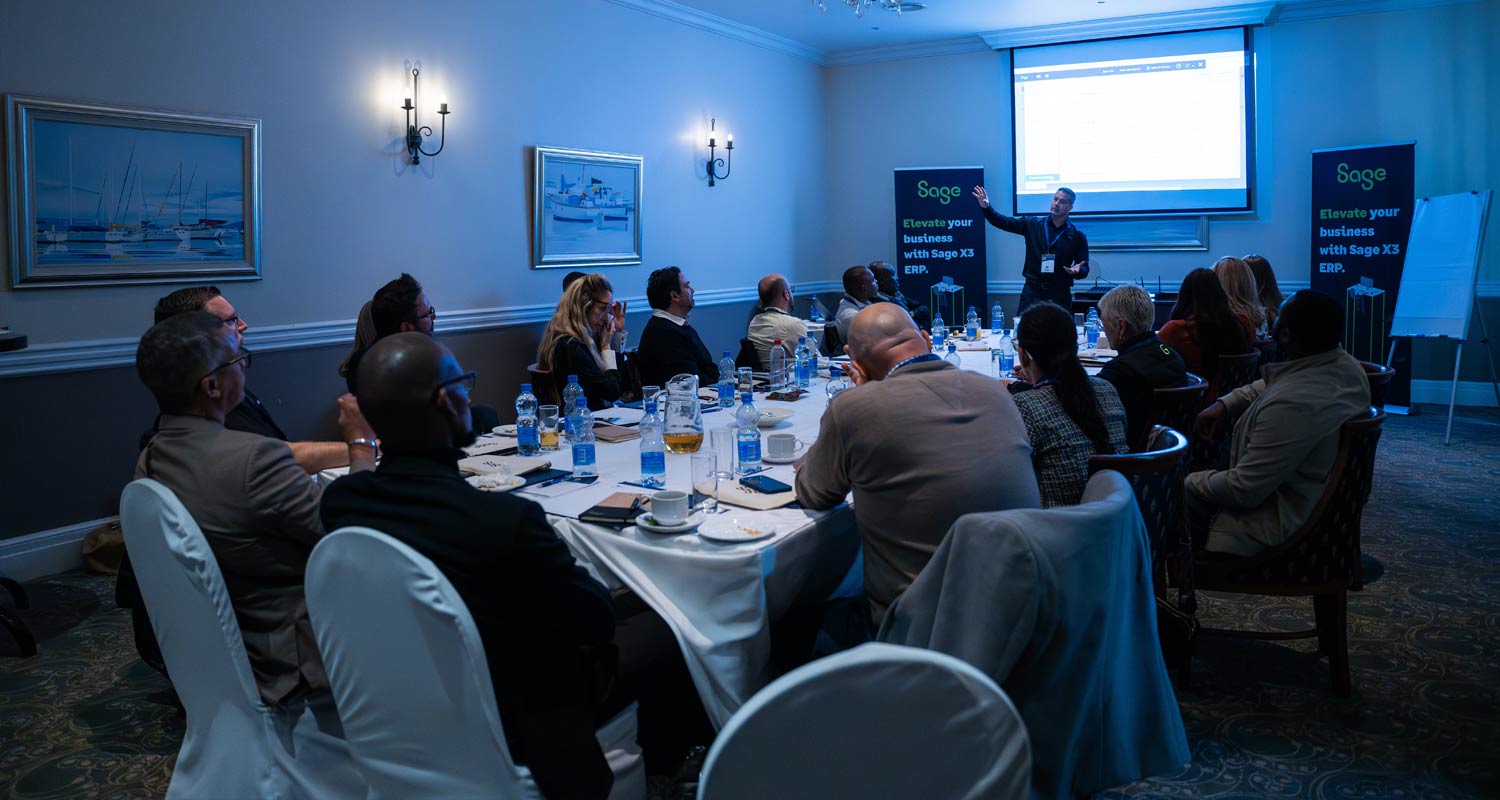The Eastern Cape, a cornerstone of South African manufacturing, particularly in the automotive sector, is facing a turbulent era.
The lingering impact of Covid-19, economic instability, infrastructure limitations and the urgent need for sustainable practices have created a complex web of challenges for manufacturers in the region. The recent manufacturing round table, hosted by TechCentral and Sage, brought these issues into sharp focus, exploring how technological integration and strategic systems implementation can build resilience, and drive growth and competitiveness in the face of these challenges.
Attendees agreed that, as manufacturers in the Eastern Cape navigate these turbulent times, the strategic deployment of technology and integrated systems such as enterprise resource planning (ERP) will be crucial not only for ensuring survival but also thriving in a competitive and rapidly changing market.
Evolving challenges
One of the key issues raised during the discussion was the lack of a comprehensive business network and general awareness of opportunities available in the Eastern Cape. This gap results in many manufacturers being left in the dark about regional strengths and potential growth areas.
Additionally, the region has long been underserved by technology vendors. The systems brought into the market are often imported solutions, many of which are not designed with the specific needs of Eastern Cape businesses. These tools can also be prohibitively expensive, making them inaccessible to smaller businesses that might benefit the most from their implementation.
Another challenge is the significant cultural resistance to change within the Eastern Cape’s manufacturing sector. Many businesses struggle with adopting a corporate culture or mindset that embraces innovation. This has created barriers to entry for new providers offering modern solutions, as many companies remain loyal to legacy service providers. This reluctance to embrace change means that small and medium-sized enterprises in the region are more risk averse, potentially stunting their growth and limiting their ability to innovate.
Moreover, for many larger businesses, key decisions often do not sit within the Eastern Cape, as the regional branches tend to be subject to central decision-making processes from headquarters elsewhere in South Africa. Compounding these challenges is the ongoing migration of talent out of the Eastern Cape to other regions of the country, driven by a perceived lack of opportunities in the province. This outflow of talent exacerbates the region’s challenges and limits the pool of skilled workers available to local businesses.
ERP as equaliser and catalyst for growth
The discussion then turned to how integrated ERP systems could help manufacturers become more competitive in a fast-changing market. The ability to integrate and automate processes across various departments was identified as a major advantage as it would allow businesses to avoid operating in silos, significantly improving operational efficiency. This holistic approach to automation can streamline workflows, enhance decision-making processes, and provide more timely and relevant reporting and insights, which are critical in today’s data-driven environment.
Participants emphasised that the key features manufacturers look for in an ERP system include seamless integration with other existing systems, robust data and reporting capabilities, and the consolidation of information across platforms. Additionally, in an increasingly regulated world, especially with the advent of stringent data privacy laws and cross-border compliance requirements, the ability to comply with legislative mandates across different countries – particularly around data localisation – is seen as a critical capability.
Empowering transformation
When discussing expectations from technology partners, including ERP vendors, manufacturers highlighted the need for vendors to offer more than just software solutions. Vendors should act as partners, helping businesses identify gaps in their processes and offering guidance on where digital awareness needs to be improved.
A crucial element that manufacturers seek is support in measuring the return on investment of ERP systems, demonstrating success through tangible results. Furthermore, vendors must supplement businesses with the necessary skill sets to assist in the transformation process, ensuring that manufacturers can fully capitalise on the technology.
 Lastly, the importance of vendors having an industry-specific ecosystem and deep knowledge of the manufacturing sector was emphasised. Manufacturers expect vendors to understand the unique challenges of their sector and tailor their solutions to meet those needs, rather than providing one-size-fits-all products.
Lastly, the importance of vendors having an industry-specific ecosystem and deep knowledge of the manufacturing sector was emphasised. Manufacturers expect vendors to understand the unique challenges of their sector and tailor their solutions to meet those needs, rather than providing one-size-fits-all products.
Sustainability imperative
The growing importance of ESG (environmental, social, governance) criteria has introduced additional layers of complexity for manufacturers, and the Eastern Cape is no exception. During the round table, it was noted that sustainability reporting has become a competitive differentiator for businesses in the region. Companies are now required to meet specific sustainability targets, which often include managing environmental impact, reducing waste and complying with evolving regulations.
Local businesses have recognised the value of helping their partners meet ESG goals through sustainability reporting and scorecards, which not only strengthen business relationships but also enhance competitiveness. However, tracking and measuring progress toward these goals can be difficult without the right tools in place. Integrated ERP systems offer a solution to this problem by enhancing transparency and reporting. These systems allow businesses to track their sustainability metrics in real time, enabling them to produce comprehensive reports that demonstrate their progress toward meeting ESG targets.
The round-table discussion on the Eastern Cape’s manufacturing sector provided valuable insights into the region’s challenges and potential solutions. From the lack of technological infrastructure and cultural resistance to change, to the migration of talent and barriers to market entry, it’s clear that manufacturers in the Eastern Cape face significant hurdles. However, participants shared a view that with the right strategies and tools in place – such as the integration of ERP systems – there is a pathway to greater efficiency, competitiveness and sustainability. The adoption of modern, integrated systems will be essential in ensuring long-term resilience and success.
TechCentral and Sage thank all of those who participated in the roundtable discussion.
Don’t miss:
TechCentral
techcentral.co.za
